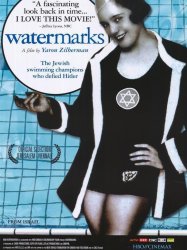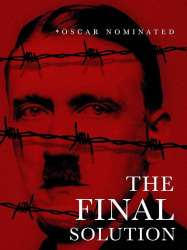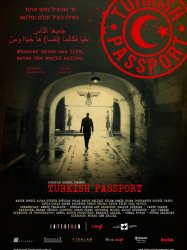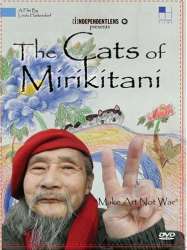No Crossover: The Trial of Allen Iverson is a american film of genre Documentary released in USA on 13 april 2010
No Crossover: The Trial of Allen Iverson (2010)

If you like this film, let us know!
Released in USA 13 april 2010
Length 1h20
OriginUSA
Genres Documentary
Themes Films about racism, Sports films, Documentary films about sports, Documentary films about racism, Documentary films about law, Documentaire sur une personnalité
Rating1%










No Crossover: The Trial of Allen Iverson is a 2010 documentary film produced by Kartemquin Films for ESPN's 30 for 30 series and directed by Steve James. No Crossover details a 1993 brawl involving then-high school basketball player and future NBA star Allen Iverson, and how the incident – and the subsequent trial and eventual conviction of Iverson – divided the town of Hampton, Virginia, where Iverson attended Bethel High School.
The documentary features camcorder footage from the February 14, 1993 altercation at a Hampton bowling alley, where Iverson and his young friends were accused of attacking adults with chairs. The incident allegedly stemmed from racial epithets said by the white adult high school students from neighboring Poquoson to Iverson and his friends. Iverson was specifically accused of striking a white woman. While vital to the prosecution, the videotape of the incident is unclear and it is difficult to make out any of the individuals involved. Despite punches thrown by both parties involved, only Iverson and his friends Melvin Stephens, Samuel Wynn and Michael Simmons, were charged in the incident. Iverson was sentenced to 15 years in prison, but after four months at Newport News City Farm correctional facility, Iverson was pardoned by Governor Doug Wilder and was released from custody.
Director Steve James, a Hampton native, takes a personal look at how the Iverson incident and the ensuing aftermath highlighted the community's existing racial tension and put the town's problems of race relations front and center in the daily papers. The film introduces multiple Hampton natives, both black and white, as they reflect on how the incident affected the town. While Allen Iverson refused to participate in the documentary, multiple friends, neighbors and former coaches provided insight into the life of the young Allen Iverson.
Premiering at the 2010 SXSW Festival in Austin, No Crossover would make its television premiere on ESPN's on April 13, 2010. On the night of ESPN's No Crossover premiere, the phrase 'Allen Iverson' was the sixth most popular trending topic across all forms of social media and by the end of the broadcast, reached number one as the most popular phrase according to the Brizzly platform that measures Facebook and Twitter activity.
On January 15, 2011, United States Department of State's Bureau of Educational and Cultural Affairs chose No Crossover as one of eighteen documentaries represented in the American Documentary Showcase. As an official selection of the American Documentary Showcase, No Crossover will be sent to more than twenty countries around the world to help cultivate a global understanding of American social issues.
Synopsis
Le 13 février 1993, la star du basket-ball de Bethel High School, Allen Iverson, est entrée dans un bowling de Hampton, en Virginie, avec plusieurs camarades de classe. Censée être une soirée ordinaire, c'est devenu une nuit qui a changé la jeune vie d'Iverson. Une bagarre a rapidement éclaté entre les jeunes amis noirs d'Iverson et un groupe d'hommes blancs plus âgés. Les retombées de la rixe et le déroulement du procès qui a suivi ont conduit le meilleur athlète de lycée du pays en prison et ont fortement divisé la ville selon des critères raciaux...Comments
Leave comment :
Suggestions of similar film to No Crossover: The Trial of Allen Iverson
There are 8969 with the same cinematographic genres, 7273 films with the same themes (including 4 films with the same 6 themes than No Crossover: The Trial of Allen Iverson), to have finally 70 suggestions of similar films.If you liked No Crossover: The Trial of Allen Iverson, you will probably like those similar films :

Watermarks (2004)
, 1h20Genres Documentary, Historical
Themes Films about racism, Films about religion, Sports films, Documentary films about sports, Documentary films about racism, Documentary films about law, Documentary films about historical events, Documentaire sur une personnalité, Documentary films about religion, Films about Jews and Judaism
Rating71%





L’Hakoah (« La force » en hébreu), fut fondé à Vienne en 1909, par réaction au célèbre paragraphe aryen qui interdisait aux clubs de sport autrichiens d’intégrer des athlètes juifs et devint l’un des plus grands clubs de sport de l’Europe de l’entre deux guerres. Dans les années 30, les plus grands succès de l’Hakoah furent remportés par ses nageuses, qui dominaient la compétition nationale en Autriche. Après l’Anschluss, les Nazis ont fait fermer le club. Les nageuses réussirent à fuir le pays avant que la guerre n’éclate, grâce à une opération de sauvetage organisée par les sportifs de l’Hakoah. 65 ans plus tard, 7 membres de l’équipe féminine de natation se retrouvent dans leur ancienne piscine à Vienne, un voyage qui évoque à la fois les souvenirs de leurs jeunes années, leur féminité affirmer et qui leur permet de renouer les liens de toute une vie.
 , 3h34
, 3h34Directed by Ken Burns
Origin USA
Genres Documentary
Themes Films about racism, Sports films, Martial arts films, Boxing films, Documentary films about sports, Documentary films about racism, Documentary films about law, Documentary films about historical events, Documentaire sur une personnalité, Le boxe anglaise
Actors Keith David, Samuel L. Jackson, Adam Arkin, Philip Bosco, Kevin Conway, Brian Cox
Rating82%






Too Colourful for the League (2001)
, 52minutesOrigin Canada
Genres Documentary
Themes Films about racism, Sports films, Documentary films about sports, Ice hockey films, Documentary films about racism, Documentary films about law, Documentaire sur une personnalité
Rating63%






Death of Apartheid (1995)
, 50minutesDirected by Mick Gold
Origin United-kingdom
Genres Documentary
Themes Films set in Africa, Films about racism, Documentary films about racism, Documentary films about law, Documentaire sur une personnalité, Documentary films about politics, Political films
Rating66%





 , 1h29
, 1h29Directed by Dieter Hildebrandt
Genres Documentary
Themes Films about racism, Films about religion, Documentary films about racism, Documentary films about law, Documentary films about war, Documentary films about historical events, Documentaire sur une personnalité, Documentary films about religion, Political films, Films about Jews and Judaism, Documentary films about World War II
Rating71%






The Eye of the Storm (1970)
Origin USA
Genres Documentary
Themes Medical-themed films, Films about racism, Documentary films about racism, Documentary films about law, Documentaire sur une personnalité, Documentary films about health care, Films about psychiatry
Rating82%





William Peters follows Jane Elliott's conversely controversial and lauded schoolroom exercise of dividing an otherwise homogenous group of elementary school kids by their eye color. It was a demonstration of prejudice and discrimination meant to teach the students about the unfairness of racism, developed as a response to the shooting of Martin Luther King in April 1968. The film records Elliott in 1970 while conducting the exercise for the third time.
 , 1h34
, 1h34Origin USA
Genres Documentary
Themes Films set in Africa, Films about racism, Documentary films about racism, Documentary films about law, Documentary films about war, Documentary films about historical events, Documentaire sur une personnalité, Documentary films about politics, Political films
Actors Helen Mirren
Rating75%





 , 3h5
, 3h5Directed by Sidney Lumet, Joseph L. Mankiewicz
Origin USA
Genres Documentary
Themes Films about racism, Documentary films about racism, Documentary films about law, Documentary films about historical events, Documentaire sur une personnalité, Documentary films about politics, Political films
Actors Paul Newman, Ruby Dee, Joanne Woodward, James Earl Jones, Clarence Williams III, Burt Lancaster
Rating81%





Film biographique sur Martin Luther King Jr..

Turkish Passport (2011)
, 1h31Genres Drama, Documentary, Historical
Themes Films about racism, Films about religion, Documentary films about racism, Documentary films about law, Documentary films about war, Documentary films about historical events, Documentaire sur une personnalité, Documentary films about politics, Documentary films about religion, Political films, Films about Jews and Judaism, Documentary films about World War II
Rating79%





Turkish Passport tells the story of diplomats posted to Turkish embassies and consulates in several European countries, who saved numerous Jews during the Second World War. Whether they pulled them out of Nazi concentration camps or took them off the trains that were taking them to the camps, the diplomats, in the end, ensured that the Jews who were Turkish citizens could return to Turkey and thus be saved. Based on the testimonies of witnesses who traveled to Istanbul to find safety, Turkish Passport also uses written historical documents and archive footage to tell this story of rescue and bring to light the events of the time. The diplomats saved not only the lives of Turkish Jews, but also rescued foreign Jews condemned to a certain death by giving them Turkish passports. In this dark period of history, their actions lit the candle of hope and allowed these people to travel to Turkey, where they found light. Through interviews conducted with surviving Jews who had boarded the trains traveling from France to Turkey, and talks with the diplomats and their families who saved their lives, the film demonstrates that "as long as good people are ready to act, evil cannot overcome".

The Cats of Mirikitani (2006)
, 1h14Genres Documentary
Themes Films based on the September 11 attacks, Prison films, Films about racism, Films about religion, Films about terrorism, Transport films, Aviation films, Documentary films about the visual arts, Documentary films about racism, Documentary films about law, Documentary films about war, Documentary films about historical events, Documentaire sur une personnalité, Documentary films about politics, Documentary films about religion, Documentary films about technology, Documentary films about terrorism, Political films, Films about Islam, Documentary films about World War II, Disaster films, Films about aviation accidents or incidents, Films about hijackings
Rating81%





In 2001 Japanese American painter, Jimmy Mirikitani (born Tsutomu Mirikitani), and over 80 years old, was living on the streets of lower Manhattan. Filmmaker, Linda Hattendorf, took an interest and began
 Connection
Connection